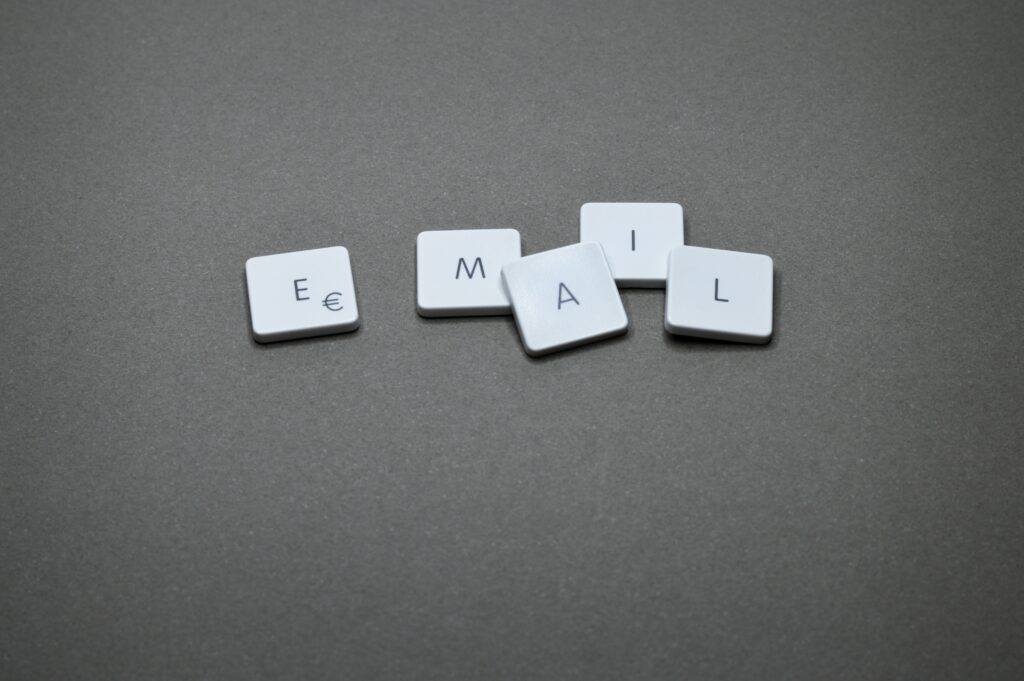Introduction
Lead generation and marketing agencies are services that can help you grow your businesses, but they have distinct roles.
They can provide businesses with several services, such as search engine optimization (SEO), content creation, website design, and tracking metrics.
While both types of agencies offer these services to help businesses grow their online presence and reach potential customers, there are key differences between lead generation agencies and marketing agencies.

Lead generation agencies focus on generating leads for your business, while marketing agencies are typically involved in developing campaigns that promote brand awareness and drive conversions from leads to customers. In this article, we will look at the differences between lead generation and marketing agencies in detail so you can decide which best suits your business needs.
What is a Lead Generation Agency
A lead generation agency is a service that helps businesses identify potential customers through various marketing and advertising methods. Lead generation agencies work with businesses to create campaigns that generate sales leads for their target market.
They may specialize in certain industries, such as healthcare, finance, or technology, and can use a variety of tactics to reach potential customers, such as email marketing, pay-per-click advertising, and online surveys. Lead generation agencies can also help with customer segmentation, using customer data to create campaigns targeting specific customer profiles.
Lead generation agencies help businesses collect information about potential customers. The agency will compile a list of qualified leads for their clients, which can then be used to target and market products and services to these potential customers.
Typically, lead generation agencies work with a variety of clients in several industries. They have extensive databases of potential leads and use various techniques – such as email marketing, telephone solicitation, and social media marketing – to reach out to them.
If you’re looking for help generating leads for your business, a lead generation agency is a great option. They have the experience and expertise necessary to identify interested prospects and collect the information you need to contact them. Contacting potential customers can be a time-consuming process, so it’s often more efficient – not to mention less expensive.
Lead generation agencies can be incredibly useful for businesses looking to grow their customer base. By working with an experienced and reliable agency, businesses can focus on their products or services while the agency takes care of finding new leads and building relationships with potential customers.
Ultimately, lead generation agencies provide businesses with a powerful tool for reaching more customers and increasing their sales revenue. It’s a great way to get the most out of your marketing efforts.
Is lead generation business legit?
Lead generation business is an increasingly popular practice that many businesses and entrepreneurs are beginning to take advantage of.
However the legitimacy of lead generation business has been a topic of discussion for some time now. While there are certainly advantages to this type of business, there are also potential drawbacks that should be considered before engaging in such activities.
Yes, most lead-generation businesses are legit. However, it’s important to research to ensure you’re working with a reputable company.
There are a lot of scams out there, so it’s important to be careful.
So how do you tell the difference? First, make sure you do your research. Read reviews, talk to other business owners, and ask for referrals. Make sure the company is transparent about collecting and storing leads and asks for references from past clients.
And then be sure to test out any potential lead generation companies before you sign up with them. For instance, the quality of leads generated by these businesses may not be as good as they promised.
In addition, lead generation activities could draw the wrong type of customer and create an ineffective sales channel. It’s important to research any potential lead generation business to ensure the leads are of high quality and that the business practices are ethical.
Run a small campaign and see how they perform. If they don’t produce good results, move on.
Lead generation businesses also must be aware of their legal responsibilities. Depending on the type of product or service that is being sold, specific regulations may apply to protect customers from fraud or deceptive practices. Companies should ensure they are familiar with relevant laws and regulations relating to their business activities.
Finally, while lead generation can be a beneficial practice for businesses, it’s important to understand that it is not a “quick fix” solution. Generating quality leads requires time and effort, and companies should ensure they are prepared for the commitment before engaging in such activities.

What Services Does a Lead Generation Agency Provide
A lead generation agency provides a variety of services that help businesses increase their leads and sales. Some of these services include:
- Developing and executing lead-generation campaigns
- Generating leads through search engine optimization (SEO)
- Generating leads through pay-per-click (PPC) advertising
- Generating leads through social media marketing
- Generating leads through email marketing
- Generating leads through content marketing
They will help you to identify your target market and create a strategy for reaching them. Their other services include:
Marketing research
This service helps businesses determine their target audience, what they want, and how best to reach them.
Generating leads through marketing campaigns
A lead generation agency will design and execute targeted marketing campaigns that reach potential customers who are likely to be interested in the business’s products or services.
Creating content
They will also help you to create compelling content that will capture the attention of your target market and persuade them to take action.
Creating and managing customer databases
Once leads are generated, the agency will work to ensure that all information about those leads is organized and easily accessible so that sales representatives can follow up quickly and effectively.
Set up and manage your social media accounts
In addition, they will also help you to set up and manage your social media accounts, as well as carry out email marketing campaigns.
Providing customer support
In some cases, the lead generation agency may also provide customer support services to ensure customers have the best experience possible. This can include answering questions, helping with purchases and returns, and resolving any issues that may arise.
Analyzing data and measuring ROI
Finally, a lead generation agency will analyze the collected data to determine what strategies work best and how they can be improved. This helps you track your results and measure your ROI to see how effective your campaigns are.

How much do you pay for lead generation? What is a good budget that one can allocate to lead generation?
Lead generation is an important part of any business’s marketing plans and can be a key factor in driving sales. However, the cost of lead generation services can vary greatly with so many options available. Determining how much you should pay for lead generation depends on several factors, including the quality of leads generated, your budget, and your chosen service.
So there’s no one-size-fits-all answer to this question, as the amount you’ll pay for lead generation will vary depending on the quality and quantity of leads you’re looking for. Remember that not all lead generation is created equal – some methods will be more expensive than others.
Sometimes the amount you pay for lead generation will vary depending on your industry, the quality of leads you’re looking for, and your overall marketing budget.
It’s important to research and find a lead-generation strategy that fits your needs and budget. That said, a good budget to allocate for lead generation is somewhere in the range of $750-$1500 per month.
Another good rule of thumb is to allocate around 10% of your marketing budget to lead generation.
Again, it’s important to make sure that you’re getting good value for your money when it comes to lead generation. So before making any decisions, be sure to do your homework and compare the prices and quality of various lead generation services.
The most important thing to keep in mind is that the cost of lead generation shouldn’t be your only factor when making decisions about how much to spend. Instead, you should focus on the value it can provide by helping you generate high-quality leads and increase sales.
In addition, you should ensure that your chosen lead generation service is reliable, efficient, and up-to-date with the latest trends in marketing.
Finally, don’t forget to factor in the time needed to research and implement a lead-generation strategy – it’s worth the effort! Considering all these, you can ensure that you get the most out of your lead generation investment.
Are lead generation companies worth it?
Many businesses turn to lead generation companies for help in growing their customer base. But are lead generation companies worth it? Ultimately, the answer is yes—but with some caveats.
For starters, lead generation companies can be incredibly useful in helping to find customers who are genuinely interested in what your business has to offer. Lead generation companies have access to a wide range of data, including demographics and psychographics.
This data can be used to identify potential customers interested in the company’s products or services. So there is no one-size-fits-all answer to this question, as it depends largely on the needs of the business. Generally speaking, lead generation companies can be useful when it comes to finding new prospects at scale.
However, it’s important to remember that not all lead generation companies are created equal. Before signing on with any lead generation company, it’s important to do your research. Make sure you read the fine print and understand what services are offered and their associated costs.
Another thing to consider is that lead generation companies don’t guarantee results. It’s still ultimately up to you and your team to use the leads generated effectively and profitably. This means having a well-thought-out plan in place for how you will use the leads and an understanding of what metrics will be used to measure success.
In short, lead generation companies can be incredibly useful tools—but only if they are used properly. Do your research before signing on with any company and know what you’re getting yourself into. With the right lead generation company, you can be sure your business will benefit from the influx of new leads. So, are they worth it? Absolutely!

What is a Marketing Agency
A marketing agency is a company that provides expertise and resources in the areas of marketing, advertising, branding, and strategic communication. With their help, businesses can improve their visibility and reach more potential customers.
By leveraging the power of various digital tools such as social media channels, search engine optimization (SEO), content creation, and targeted campaigns, a professional marketing agency can help create an effective strategy to maximize the success of your business. The marketing experts at these agencies are skilled in understanding the customer’s needs, identifying their target market, and creating strategies that will effectively reach the right people.
With their help, businesses can increase awareness of their brand, build relationships with potential customers, create better content to engage those customers, and ultimately drive sales. In short, working with a professional marketing agency is a powerful way to drive predictable growth for your business.
With its collective expertise, a marketing agency can craft campaigns that are custom-made with a unique approach tailored to meet your goals. And the best part is that they understand what works in today’s digital age, so you won’t have to waste time figuring out new trends or methods yourself.
So if you’re tired of having to juggle all your marketing needs on your own, working with a marketing agency could be a good idea.
You can get your business ingrained into people’s minds quickly with a team focused solely on helping push forward your brand image. A marketing agency can help build and drive well-thought-out strategies taking advantage of cutting-edge technology and getting your build name recognition and sales growth.
What Services Does a Marketing Agency Provide
A marketing agency can provide a broad range of services that help businesses reach their target audience and promote their products and services. A marketing agency provides various services, including market research, branding, product development, and campaign strategy.
They typically have a team of experts with diverse backgrounds in advertising, public relations, and marketing. For example, they can create comprehensive campaigns that include media relations, advertising, copywriting, branding, direct mail, graphic design, social media management, and more.
In its simplest form, a marketing agency works to create comprehensive campaigns that help businesses reach their target audience and promote their products and services.
But a good marketing agency can do more than just implement strategies. They can provide strategic advice to help businesses develop the best approach for their particular situation. They can also help with research and analytics that allow businesses to track the progress of campaigns and make adjustments as needed.
Working with a marketing agency can be an effective way to get your company’s message out. They can help you create an exhaustive marketing plan that targets your specific audience and reaches them where they spend their time online and offline.
If you’re looking for help getting your business off the ground or want to take your current marketing efforts to the next level, then a marketing agency may be right for you.
At the end of the day, a marketing agency is an essential partner for businesses looking to grow. They bring expertise and resources that can’t be found in-house, allowing businesses to focus on other aspects of their operations while leaving the marketing strategy up to the professionals.
After all, if you want to maximize your ROI and reach a wide range of customers, it pays to have an experienced team. So if you’re looking for an effective way to get the word out about your business and increase sales, consider working with a marketing agency. You won’t regret it.

How Do You Decide Which Marketing Agency Is Right for Your Business
Deciding which marketing agency is right for your business can be a daunting decision, but it doesn’t have to be. After all, there are so many different options, and they all promise great results. It’s important to consider the type of services you need, how experienced the agency provides them, and if they have the resources necessary to get the job done.
Here are a few key things to look for that will help make the decision easier for your company when choosing a marketing agency.
First, you’ll want to consider your budget. Not all agencies are created equal, and some charge more than others. So be sure to factor in how much you’re willing to spend before making a decision.
Second, think about what you want the agency to do. Do you need help with SEO? Or maybe social media marketing is more your thing? Figure out what areas you need help with and then find an agency specializing in those services.

Analyzing your goals and objectives is also key. You want to look for an agency with a track record of delivering success, whether developing a comprehensive marketing strategy or targeting new customers with creative campaigns.
You also want to make sure the agency is a good fit from both a personal and professional standpoint. Do they have an understanding of your industry? Are their team members easy to work with? Is their pricing competitive? These are all important factors that should be considered when selecting your marketing agency.
And finally, be sure to ask around and do your research before making a decision.
Ask other business owners which agencies they’ve worked with in the past and what their experiences have been like. Read reviews online and see what people are saying about different agencies. Get a feel for who the best fit is, and then make your decision based on that.
Choosing the right marketing agency can be a tricky process, but with the right amount of research and planning, it doesn’t have to be an overwhelming one. Just remember to look for an experienced team that understands your industry, has the right resources and fits within your budget.
Ultimately, the marketing agency you choose should have a clear sense of your needs, the ability to deliver results and make sure you’re getting value for money. By taking the time to weigh your options, you can be sure that you’re investing in the right marketing agency for your business.
Benefits of Working with Either Type of Agency
When it comes to your business’s online presence, working with a lead generation agency is vastly superior to using a traditional marketing agency. The primary benefit of lead generation is that it gives you the power to target potential customers who are actively searching for products and services like yours.
With the help of advanced data analytics and machine learning tools, leads can be tracked across multiple channels and platforms, giving unparalleled access to an audience primed for conversion.
Lead generation also offers much higher ROI than other forms of marketing since it requires fewer resources but yields more measurable results. And lastly, with detailed reporting capabilities, you get real-time insights into which campaigns are performing best so you can optimize accordingly. But at the same time, marketing agencies are generally better at offering a broader range of services – from branding and advertising to website design and SEO.
They can help you stay on top of the latest trends in marketing, which is essential in today’s ever-changing landscape. Agency staff is always learning new techniques and strategies and keeping up with the latest tools and platforms so that they can pass that knowledge on to their clients. And lastly, a marketing agency can be a valuable partner in decision-making, giving you the advice and guidance needed to make informed decisions.
Ultimately, the decision comes down to your short-term and long-term goals. If you’re looking for quick wins focusing on lead generation, then a specialized agency is the way to go. But if you need more comprehensive marketing services, a traditional agency may better suit your needs.
Whichever route you choose, be sure to choose an agency that has a track record of success, understands your industry, and is aligned with your business’s objectives. It’s important to remember that both lead generation and traditional marketing are invaluable tools for building a successful online presence. Make sure to research and pick an agency to help you reach your goals.
Doing so will ensure you get the best results out of your investment.
Closing Thoughts
Lead Generation Agencies and Marketing Agencies can both be invaluable partners in helping your business reach its goals. While Lead Generation Agencies specialize in driving qualified leads through targeted campaigns, a full-service marketing agency will help you develop an overall marketing strategy beyond lead generation to encompass all aspects of digital promotion.
Ultimately, the decision between hiring one or the other depends on your specific needs and budget. If you’re looking for guaranteed results with minimal effort, go with a Lead Generation Agency; if you need more comprehensive support, such as website design or content creation services, hiring a Marketing Agency may be best suited for your business objectives.
So there you have it, everything you need to know about lead generation agencies vs. marketing agencies.
Whichever route you choose, ensure they have proven experience delivering successful campaigns tailored specifically to your company’s unique requirements.
If you’re ready to make the leap and hire an agency that will generate leads that turn into sales, get in touch with us. We’re a full-service lead generation agency that can help you take your business to the next level.
Let’s get your phone ringing off the hook with prospective clients. 🙂
And if marketing is more your speed, we can do that too. Either way, we’ll make sure you get the results you need and deserve.
We hope this blog post has helped clear up any confusion between these two types of agencies. And if you’re still not sure which direction to take your business in, give us a call. We’d be happy to chat with you about your options and figure out the best game plan moving forward.










